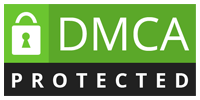People all over the world are now using the computer and the internet. The information and data that passes through from one device to another on a global scale is an extensive amount. Along with this, has also increased cybercriminal activities, threats, and risks.
Cybersecurity in response to these harmful elements is through network security awareness and practicing secure browsing habits. There are also cybersecurity tools such as antivirus software to assist you.
There are many antiviruses in the market that have successfully protected computer softwares.
The concern that experts follow through in this topic is the development of rogue or fake antivirus software that was created by hackers and cybercriminals to collect details from users and use it to extract money or digital assets.
In this article, we will be discussing awareness and the lookout for fake antivirus software.
Fake Antivirus
Fake antivirus is software that hides in a legitimate software domain. It lures users by masking a part of your web browser like an advertisement, alerting you that it has found a virus or an infection.
The goal of this method is to threaten the victim with urgency to avail of the fake application. Some of these malicious programs or applications can render your computer system vulnerable.
To an extent, it can disable security softwares. This makes it difficult to detect and remove, this persistent threat has become one of the leading web problems.
How Fake Antivirus Work
While working or browsing the internet, the usual approach of a fake virus is through a pop-up message or advertising a new advanced software.
The content of the advertising is designed just like an assessment and appears to have scanned your computer for viruses, or mostly would alert that your system is at risk.
How to identify Fake Antivirus
Aggressive Pop-ups
Most of the time you will be interrupted by advertisements for antivirus invites. These types of antivirus are rogue and would invite other rogue ads on your system software, thus having more aggressive pop-up ads.
Slow Internet Speed
People who have installed fake antivirus software will encounter a drag or slow internet performance speed. This is because the installed virus or malware will use the connection to install other malware.
Sudden Change of Homepage
This is the easiest way to identify if you have a fake antivirus. You will surely have rogue software installed on your device when your web homepage suddenly changes, this also applies to your device homepage.
Directing Browser Search
When you have installed fake antivirus software, it often does changes in your web browser operations such as redirecting opened search to fake and unsecured websites. This increases the chances of users falling victim to the attack.
Linking to a Different Domain
Apart from unsecured websites, some hackers plant antivirus software links to legitimate websites. You should be very careful when your activity gets redirected.
Managing Fake Antivirus
Fake antivirus software can be managed through the elimination of vulnerabilities, enabling of firewall, setting configuration, set limits to websites, avoid interacting with pop-ups, take notice of website or browser warnings, and purchase legit or genuine products from trusted companies.
Career Opportunity
Computer and internet users are increasing by the day, and more people are becoming aware of the growing threats.
Because of this, there is a great need for cybersecurity tools, products, services, and more importantly the professionals.
Talent is in demand and the opportunity for you to start a career is now. Reliable Cyber Solutions, LLC., offers online programs for Certified Ethical Hacker, Certified Network Defender, and several others. Visit our website for more details at RCyberSolutions.









